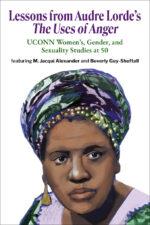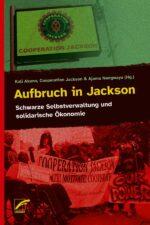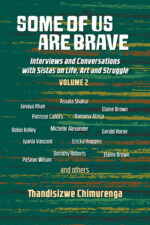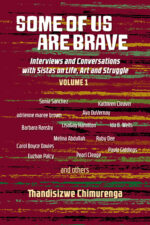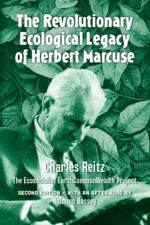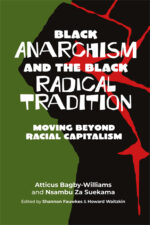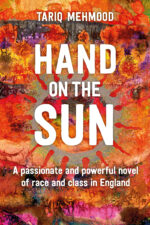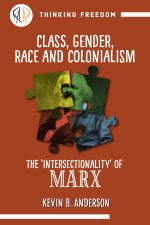-
Lessons from Audre Lorde’s The Uses of Anger: UCONN Women’s, Gender, and Sexuality Studies at 50
USD $ 15.00In recent years, we have witnessed renewed calls for women to embrace anger as a source of power. These voices have Lorde’s “The Uses of Anger”, first delivered at the University of Connecticut (UCONN), Storrs, in 1981, to thank for charting an innovative scholarly and poetic terrain that theorizes anger as much more empowering and liberating than conventional discussions of the term typically allow.
Lorde’s essay redefined anger productively, approaching it as an epistemological tool igniting a desire for self and collective liberation. The result was a remarkable critical reflection that laid the groundwork for deconstructing broader systems of oppression, particularly, heteronormativity, heteropatriarchy, institutionalized racial poverty, racial capitalism, and white privilege. Lorde’s essay moved with precision, centering Black women’s struggles in a world built around the use – and abuse – of racialized people subjected to systematic dehumanization.
In their introduction, Jane Anna Gordon, Elva Orozco Mendoza, and Sherry Zane reflect on the inheritance, lessons, and responsibilities that Women’s, Gender, and Sexuality Studies must grapple with if it is to deepen and fulfill its radical mission.
Guided by the imperative to look backward to understand the present and forge a future, the book closes with a sankofic interview with M. Jacqui Alexander and Beverly Guy-Sheftall, conducted by Briona Simone Jones.
-
Aufbruch in Jackson [German edition of Jackson Rising: Black self-management and solidarity economy]
USD $ 24.00German translation of Jackson Rising: The Struggle for Economic Democracy and Black Self-Determination in Jackson, MississippiHow black activists are building liberation practically from below: Departure in Jackson documents the history of one of the most exciting revolutionary experiments in the USA Present.
Since the 1970s, black liberation movements in majority-black Mississippi have taken change into their own hands. The Deep South should become the center of their independence – “Free the Land!” In the 2010s, the election of Chokwe Lumumba as mayor in the capital Jackson took an important step towards implementing the vision of assembly democracy, solidarity economy and an end to racial inequality. Lumumba dies unexpectedly in 2014, but his son Antar and the Cooperation Jackson continue to move forward.
We learn about the pitfalls of radical local politics and struggles for housing and land, democratic economic models and ecology, internationalist solidarity and the parallels to the Rojava Revolution and the Zapatistas, about encouraging experiences in which different concerns go hand in hand.
-
Black Anarchism and the Black Radical Tradition: Moving Beyond Racial Capitalism
I am glad to see that there is a second wave of Black anarchists since 2015, arriving on the scene. I support the rights of all Black anarchists to build their movements, and I defend the rights of Anarkata. I don’t agree with everything in this book, but that is immaterial. This is an excellent book and well written. — Lorenzo Kom’boa Ervin, activist and author of Anarchism and the Black Revolution and The Progressive Plantation. During his over 50 years as an anarchist, Ervin was a member of the Student Nonviolent Coordinating Committee (SNCC), the Black Panther Party, and Concerned Citizens for Justice. He founded the first Black anarchist federation in North America, Black Autonomy.
This revolutionary book reveals the political power of “stretching” the classical anarchic tradition to critiques of racial capitalism. Bagby-Williams and Suekama deliver an accessible, thought-provoking analysis of two waves of Black American anarchism: that which arose from 20th-century politics of Black liberation and the later reanimation of anarchism triggered by 21st-century killings by American police. The authors layer deep class criticism with insightful case studies not just to retrace a history of Black Anarchism but to make a compelling argument about the diversity of thought that influences the radical tradition. With this book, the historical and continuing contributions of feminist thought, queer activism, and anti-colonial struggle to the movement are made clear. Readers will learn that Black Anarchism has not died due to “progress,” but rather proliferated in light of the American tragedy that is capitalism, imperialism and brutal, carceral control. This book has nuance. Read it now!” — S.M. Rodriguez, Ph.D., Assistant Professor of Gender, Rights and Human Rights, London School of Economics, and author of The Economies of Queer Inclusion: Transnational Organizing for LGBTI Rights in Uganda. www.smrodriguez.com
A necessary and accessible historical analysis of the often overlooked Black anarchism. Bagby-Williams and Za Suekama demonstrate that any revolutionary movement truly committed to a post-capitalist world must constructively engage with this Black radical tradition. — Toni Harrison, Black Canadian writer, community organizer, and host of the podcast Actually Existing Socialism (https://podbay.fm/p/actually-existing-socialism).
Thank you for sharing the pamphlet. Once we started reading it we could not put it down. It was refreshing to learn about the different texts, approaches and experiences of Black anarchism. What stood out the most for us was the inclusion of feminist and queer perspectives moving away from the ableist heteropatriarchy lens. The authors recognize the importance of pan-Africanism as one source of Black anarchism. They also emphasize the Black anarchist insight that all forms of oppression must be fought, to better address the challenges across all oppressed and Black bodies. In an era where movements are advocating for the abolition or reform of oppressive systems, this text helps reflect and reimagine what new inclusive systems may look like. It also makes an important analysis that highlights the complexity and diversity in Black anarchism, which is essential if we are to confront the white savior complex and complacency in addressing inequities and dismantling racial capitalism. —Tinashe Goronga, medical doctor and public health leader in Zimbabwe; coordinator of EqualHealth’s Global Campaign Against Racism affiliated with the international Social Medicine Consortium; and Mandela Washington Fellow for 2022; and Yeukai Chikwenhere, pharmacist and global health researcher in Zimbabwe, co-founder for the Centre for Health Equity, and community organizer for EqualHealth’s Global Campaign Against Racism.
This geography of Black anarchism succeeds in outlining its tendencies, champions, and contradictions. It reminds us that the children of Maroons don’t need no lessons in liberation. That we’ve always used things that confine to redefine. We beat plowshares into swords. And then we rob gun stores, cause who uses swords anymore? —Ben Passmore, comics artist, political cartoonist, creator of the Daygloayhole Series, and author of My Black Friend, which in 2017 won the Ignatz Award for Outstanding Comic.
This work Is an important achievement in clarifying the history and current importance of Black anarchism. The information that the book presents will be new to many readers. For instance, one important component involves the explanations of how hierarchical principles within the Black Panther Party and Black Liberation Army helped generate the emergence of Black anarchism among key party members who later developed their ideas and strategies while in prison. Likewise, the book breaks new ground in demonstrating that Black anarchism has emerged not from the European/ North American anarchist traditions but rather from roots in Pan-Africanism, the Black radical tradition focusing on racial capitalism and the work of Cedric Robinson, and grassroots struggles partly in the U.S. South. An in-depth analysis of the somewhat different but complementary focuses within the two generations of Black anarchism also is very helpful. Finally, the book highlights concrete, contemporary implications for revolutionary strategy, including a perceptive analysis of the compatibilities between socialist and Black anarchist approaches to current transformative struggles. This publication will become widely known and used, because it brings enlightening new ways to understand and to act on the intertwined structures of racial capitalism and the capitalist state.

